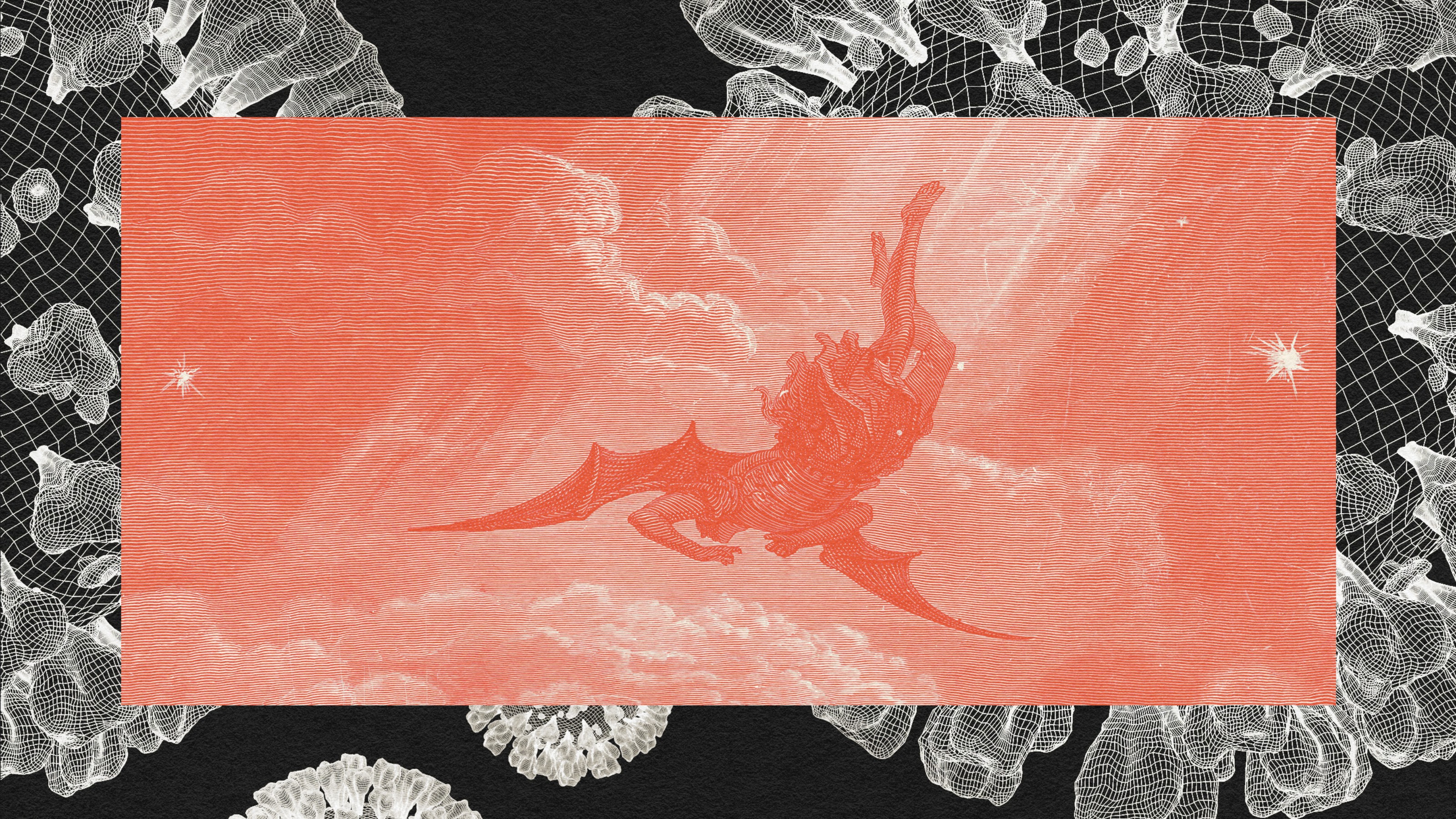Matthew Modine is an actor who has starred in major films including Streamers, Full Metal Jacket, Married to the Mob, Pacific Heights, Any Given Sunday, and Notting Hill. His recent[…]
Sign up for the Smarter Faster newsletter
A weekly newsletter featuring the biggest ideas from the smartest people
Inspired by the writing of Carl Sagen, Matthew Modine knows we must reevaluate how we treat the earth.
Question: What is the Bicycle for a Day Initiative? rnrnModine: Well, you know, the idea of Bicycle For A Day is… I travel a lot, you know, working in different countries and stuff. And in 1978, when I was in college, I was studying Oceanography and my professor, he was so sad because he felt that any moment then, in 1978, that the oceans were going to go belly up and that the whole world would turn into a giant red sea. That 98% of the world’s population lives near coastline, whether that be a river, a lake, a stream, an ocean, a sea, and that since the beginning of time, but particularly since the beginning of the industrial revolution, that the rivers, lakes, streams and oceans have become the receptacle of all of our human waste, of all of our nuclear waste, that the French government, probably the American government, probably every government, once they started developing nuclear technologies, that when they didn’t know what to do with the waste, they’d put them in 50 gallon drums and dump them out in the ocean. And there was footage that they showed us of Jacques Cousteau in his deep sea submersible going down trying to find where those 50 gallon drums had been dumped, and there they were with their lids popped open, yawning like clams, with all of the nuclear waste having seeped out and spilled out, you know, across the world’s oceans. So, my Oceanography teacher, you know, he filled me with so much fear that the world was coming to an end, because the ocean is…. You know, people don’t think about this. The world’s biggest producer of oxygen on the planet, you know, all the planktons, all the sea plants, you know. It’s the biggest forest in the world that absorbs carbon monoxide and, you know, produces oxygen. And I just, I dropped out of college. I thought that the world was coming to an end. And then, as we progressed… There’s a great article you can read, I remember, at the same time that Jimmy Carter, that he addressed the nation from the White House, gave a, one those addresses, I don’t remember what they’re called. They’re called the State of the Union Address, and Jimmy Carter was wearing a sweater because he turned the thermostat down on the White House, and he told the United States that if we don’t address the situation now, we are going to find ourselves in a situation exactly like we are today, in 2008. That he said, that it is, that addressing the environmental situation and fuel, that if we don’t stop our dependency on foreign oil, that we would be in exactly the position we are in today, that America would have lost its strength and its moral standing in the world, that we would find ourselves fighting wars for oil. Jimmy Carter said this is the moral, moral equivalent of war. He put solar panels on the White House, and they laughed at him. They said he looked like Mr. Rogers in a sweater and, you know, he put solar panels on the White House, which when the Reagan’s came in they took off because, you know, whatever reason. They felt it made our country look weak or they weren’t attractive. So they were removed. But had we in 1978 addressed the environmental problem and the fuel problem, the energy crisis that we were experiencing then, perhaps it would be 30 years ahead of the game that we are right now of trying to play catch up with the rest of the world and maybe we wouldn’t have lost our, you know… America has become kind of a joke around the world. I hate to say it, but, you know, when I was 20 and I traveled to England, people were like, “Right. That’s cool. You’re from America.” And now, when you go over there, they kind of shake their head, like you’re from not financial third world, but a moral and… Yeah, and it’s like, morally, we’re worse than a third world, you know? It’s not good how people perceive our country and, you know, there are a lot of Americans who will say, “Who cares what the rest of the world thinks?” Well, you know what, man? We live in a global economy, you know. We’re not separated so much by the Atlantic and Pacific Oceans anymore. That the world, anybody that saw the world from the moon knows that it’s a little blue ball. rnrnQuestion: What inspires you to protect the environment?rnrnModine: That the thing that Carl Sagan wrote is called The Mote of Dust, and on that Mote of Dust, you know, that just happened, like, with this image that was sent back to earth, that just in this little ray of light, that our planet was caught in a ray of sunlight, and it appears as a mote of dust, you know, in a vast, vast world of emptiness, you know? And the point is is that there’s nobody coming to save us. That we live on this little speck of dust and there is nobody coming to save us. That if we don’t get our shit together and stop fighting with each other and find a way of sustaining this little mote of dust, this little miracle of life on earth will just disappear. It’ll disappear anyway. I mean, one day the sun will stop shining. There’ll be a solar flare and the whole world will, you know, be burned and, you know, destroyed by radiation. But we don’t have to do it. We don’t have to, you know, speed the process by creating, or have it gone on our little mote of dust, you know, that we can enjoy this world for thousands and thousands of years. But we can’t continue to use its resources. We can’t continue to think that the minerals in the earth and the fuel in the earth is inexhaustible. It’s finite, you know? You know, we could keep burning coal until we destroy all the mountains in the world and grind them up and burn them, you know, the mountains that are full of coal. But, you know, we’re going to create so much acid in the air that the acid, when it falls, it goes down and kills the rivers, lakes and streams, you know, the acid. It’s the acid that comes down and it destroys the Ph in the water. These are not… I’m not a genius, you know, but all you got to do is read and understand. There is no clean, cold technology. It’s bullshit. Come on. You know, there is no safe way of burning fossil fuels that’s going to make the world a safer place. Eventually, we have to stop, you know, and it’s like we have this, just like we have this terrible level of war, this desire to go and fight with one another. And prove to me that there’s not a terrible level of war. Find me some literature that says that people choose peace over war and I’ll change my mind. But this desire to have… to, you know, to not change the way that we get energy from the earth is stupid. The sun is going to shine forever, man. So, why not capture that energy? It’s free, it’s clean, you know. It’s a one time cost, you know. So you have to put solar panels. It’s very expensive, but it’s a one time cost. The wind is always going to blow. Capture it. Use the wind’s energy. The tides on the world. The water is going to always go up and down. There’s ways of capturing that energy of when the tides come up, of creating floats that [has the wires], the tide comes in and it pushes, pushes that up. That they can capture the energy of the tide, the rising tides and the lowering tides, you know. These are the all things that have been around for a long, long time, you know, of capturing that energy. And then just not wasting so much energy. We always think about automobiles and we think about pollution in America. Our homes are so inefficient, you know, and it just takes traveling to another country and any of the Scandinavian countries. Any, most European cities and see how much more efficient people’s homes are, how much less energy those homes use.
▸
3 min
—
with





